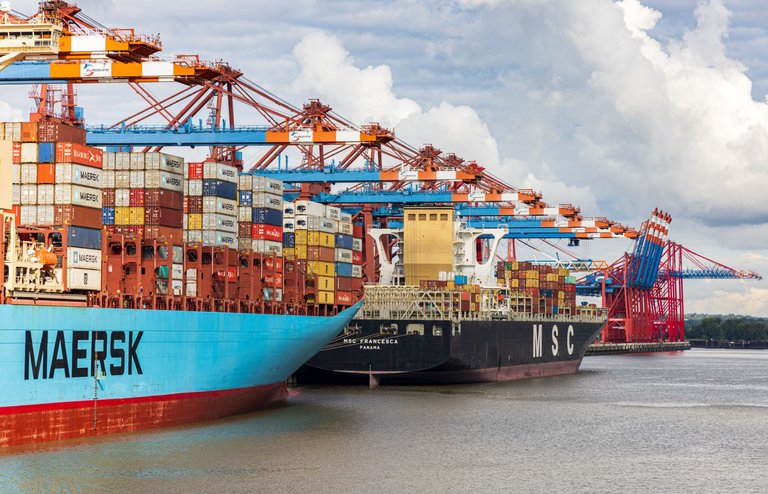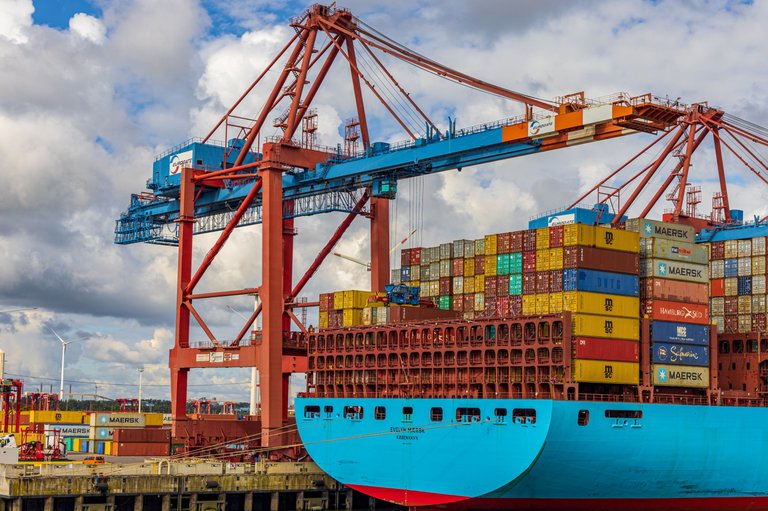Major Macro Economic Issues affecting the Nigeria Economy
Nigeria was once regarded as the Giant of Africa for a reason once upon a time. Those days look like a distant memory now as the nation's economy seems to crumble as days go by. National debts keep rising, and income generated from the export of our resources keeps on a freeway fall. The economy is collapsing, and the citizens are bearing the brunt. Nigeria has overly relied on the returns it will get from the sale of crude Oil, and more and more nations seem to be less dependent on it as they have been shifting away from its use.

For instance, many cars now in use are powered by electricity. Buildings are using solar for powering and providing electricity to all floors, thereby creating a lesser need for fuel generators. Some countries whose sources of livelihood depend on oil sales are already seeking solutions on how to create other revenue generation avenues for the sustainability of their country. For my country, it is different as the government has invested their time and effort into something else entirely. At the same time, the dishonest ones are still hell-bent on looting from diminishing resources. So the country's national income is badly affected, and the foreign reserves seem to deplete as debt rises.
Nigeria's Fiscal policy is the major reason the country seems to be drowning, as it affects all other economic factors. If the Fiscal policy is right, the government will be able to manage the economy well and improve the living standard in such a nation. The issue with the fiscal policy is that people knowledgeable about it are not consulted to draw up this policy; rather, Nigeria government most often adopts the policies used in other nations. There is a complete lack of originality in the policies, and it will likely not work for the nation's growth. Also, the lack of accountability on the part of the government has made the actualization of some of these policies unattainable despite being a policy that would move the country into a better position. The Fiscal policy governs taxes collection of a nation while also dictating the expenditure of government towards alleviating the standard of living of its citizens through providing basic amenities such as water, good roads, electricity, jobs and the promotion of local industries.
The unemployment rate in the country keeps mounting as the government is putting less effort into providing these jobs with the taxation they get from the same people. Aside from that, the country's resources are supposed to be for every citizen but it is different here as only a few people get to enjoy this or have access to it. The country's Small and medium-scale enterprises keep shutting down due to a lack of finance and support from the government. The crazy thing is that the government still charges these small entrepreneurs very high, and the same government does nothing to ensure that this set of people gets access to basic loans which could be used to expand their business. As small and medium-scale businesses expand, they will surely need to employ more hands as the tasks or operations of such a firm will need an extra hand. Government fails to understand that creating numerous job opportunities is a great and fast way to reduce the poverty rate of the economy. Through their numerous policies also, most international brands do not want to setup shop in the country as the demands asked by government are a complete turnoff.

As earlier said at the beginning of this article, Nigeria's overdependence will be the nation's doom. For a country blessed with natural resources and powerful brains (i.e. human resources), we are slacking on international trading. We should be doing less importation as producing a chuck majority of what we use could be done from the country. The government could do better by placing bans on many important items, especially household and consumable items used in everyday life. Nigerian soil is rich and great for plantation. Before we discovered Crude Oil, we got a chuck dose of our national income from the sale of Cocoa. After we discovered Oil, the government forgot about Cocoa and failed to help the cocoa farmers. Loans and access to basic materials like fertilizers, farm tools, and seeds are now difficult for these farmers. Nigeria also produces household items like rice, beans, garri and many consumable goods and cash crops, which could be used to support the declining sale of Crude Oil, but they are not focused on that. Also, the importation of almost everything affects the local economy and businesses as more people will gladly take a foreign product over locally made. The locally made product might be more quality than imported ones.
Still, on international trade, the government could help by placing bans on importing some of these goods, which could be locally produced and support the business in the industries with access to free interest loans and other resources to facilitate their growth. By treating the local industries as priorities, the total reliance on importation will be reduced, and it will help strengthen our country's currency against foreign ones, which will help reduce inflation (That's a story to be discussed later in the post). If the local industries are allowed and equipped to furnish by also waving tax, they could have a direct impact on the micro economy of Nigeria by providing jobs for the citizens, ensuring that the supply of goods is excess, which will, in a way, make acquiring these goods much easier and cheaper. Also, if the local industries are supported, we can have a larger competitive advantage in producing some of these goods over other nations and exporting the excess. Exporting this excess thereby, in a way, help increases the national income and reserves. Also, exporting more of our locally made goods will help create a demand for our currency, increasing the value in the international market. Creating greater dependency on our locally made products will help fight inflation in an event where war breaks out between two big countries, and their resources and goods can no longer be accessed. Goods produced locally help build our sustainability when a sharp change in trend occurs.

Speaking about war, there is no denying that the rift between Russia and Ukraine affects many countries because the two countries are major exporters of some household goods. Based on the war, people must focus on getting it elsewhere, which might not be cheap. In a way, that creates a buy pressure on these commodities, and the countries selling will have no choice but to shoot the value of the commodities up. Since the buying nations are getting these goods much more expensive, they hike the prices too, leading to national inflation. For Nigeria, though, the war might not have affected us much as it has affected other nations, but over-reliance on importation has created demand pressure for the dollar. This pressure on the demand for the dollar has allowed the holders to increase the value. Based on the fact that the dollar is needed to buy goods from outside the country, and the dollar has also increased in value as against our dollars, the value of the imported products will skyrocket, making it expensive.
Nigerians are funny because when the naira depreciates against dollars, the cost of all goods automatically increases, even for locally produced goods. I was pissed at this at first until I understood why this event happened. It was explained to me that most locally produced goods or food still need foreign ingredients or commodities. For instance, the farmers need manures and fertilizers to ensure that their crops germinate easily and that the soil is fertile enough to germinate all seeds and crops. So regardless of the supply and demand of those goods, the price of those farm produce would have been already affected because some of the tools and ingredients used are imported.
Of course, Nigeria has their fair share of security issues. They continue to battle and be at war with the Bokoharam, the country's northern section. Then we have militants in the southern part of the country bursting and destroying pipelines costing the government millions of dollars daily. This loss contributes to our national income losses accumulated over time. This war cost money and also personnel. Although it is not as serious as what has been experienced in most countries, it still affects the national income of Nigeria as our expenditure continues to outweigh income.
Posted Using LeoFinance Alpha
https://leofinance.io/threads/view/lebey1/re-lebey1-sryxg64t
The rewards earned on this comment will go directly to the people ( lebey1 ) sharing the post on LeoThreads,LikeTu,dBuzz.